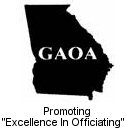"NONPROFIT MANAGEMENT"
"...taken from suite 101 website"
Leaders in nonprofits and foundations are making a continuing commitment to ethical practices and the responsible stewardship of resources.
Independent Sector encourages members of the nonprofit community to regularly review and improve their own governance and accountability practices.
Does your organization:
1. Hold staff and board trainings on ethics or take other measures to foster a culture of accountability and transparency?
2. Have a code of ethics and statement of values and post it on your website?
3. Follow a conflict of interest policy and post it on your website?
4. Have board members with financial expertise?
5. Have its financial statements independently audited?
6. Have board members review financial statements, including the Form 990?
7. Have your CEO or CFO sign the Form 990?
8. File your Form 990 electronically?
9. Post your Form 990 on your website?
10. Post your policies, financial information, and information on programs and results to members or post on website?
11. Have a whistle blower policy?
12. Take steps to remain current with the law?
A board of directors or board of trustees is the governing body of a non-profit or for-profit organizations. It has many serious responsibilities, which can be loosely categorized as follows:
1. Setting the policy for the organization. This is done by:
Creating or updating the mission and vision statements.
Determining the organization’s programs and services.
Approving the strategic plan.
2. Monitoring the organization’s operations:
Evaluating the organization’s president.
Working with and providing support to the board.
Approving the annual budget, annual report, etc.
Approving major contracts.
Soliciting and reviewing program evaluations.
Troubleshooting as necessary.
3. Serving as a public figure for the organization Advocating for the organization.
4. Fulfilling other board responsibilities
Documenting policies and decisions to create an organizational memory.
Preparing for and attending board meetings.
Researching and discussing issues before decisions are made.
Replacing and orienting board members when a vacancy arises.
A board of directors also has certain legal obligations, known as fiducary duties. While the details may vary from state to state, here are some common legal responsibilities for members of non-profit board to:
Take reasonable care when making decisions for the organization (called “duty of care”)
Act in the best interest of the organization (called “duty of loyalty”)
Act in accordance with the organization’s mission (called “duty of obedience”)
Stand aside when there is a conflict of interest (called “recusal”)
While a board has many responsibilities, there are also things it should avoid. Basically, board members should avoid being over- or under-involved. More specifically, the board of directors should not:
Concern itself with the day-to-day management of the organization. That is the executive director’s job.
Rubber stamp decisions. While the board should take the recommendations of the organization’s director and members into consideration, the board needs to be an independent decision-making body.
Nonprofit status carries with it a specific set of obligations for the board of the corporation. Increasingly, this status is coming under scrutiny by the government and private contributors. Public and private supporters want to be sure that "not for profit" organizations operate legally and ethically. Organizational transparency is an important tool of nonprofit leadership that helps convey to members and the community that the business is operating in accordance with the law and the company’s mission, vision and values.
Benefits of Nonprofit Status
According to the article, "What are the benefits and drawbacks of nonprofit tax exempt status?" published on Find Law, not for profit standing offers a number of advantages as well as responsibilities. These include:
Tax exempt status - Nonprofit organizations, with proper documentation, are exempt from paying federal, state and local taxes.
Protection from personal liability - The entity can continue irrespective of its founders and current owners; plus it provides a legal shield for the organization’s owners and managers from personal liability for certain acts.
Independent Sector encourages members of the nonprofit community to regularly review and improve their own governance and accountability practices.
Does your organization:
1. Hold staff and board trainings on ethics or take other measures to foster a culture of accountability and transparency?
2. Have a code of ethics and statement of values and post it on your website?
3. Follow a conflict of interest policy and post it on your website?
4. Have board members with financial expertise?
5. Have its financial statements independently audited?
6. Have board members review financial statements, including the Form 990?
7. Have your CEO or CFO sign the Form 990?
8. File your Form 990 electronically?
9. Post your Form 990 on your website?
10. Post your policies, financial information, and information on programs and results to members or post on website?
11. Have a whistle blower policy?
12. Take steps to remain current with the law?
A board of directors or board of trustees is the governing body of a non-profit or for-profit organizations. It has many serious responsibilities, which can be loosely categorized as follows:
1. Setting the policy for the organization. This is done by:
Creating or updating the mission and vision statements.
Determining the organization’s programs and services.
Approving the strategic plan.
2. Monitoring the organization’s operations:
Evaluating the organization’s president.
Working with and providing support to the board.
Approving the annual budget, annual report, etc.
Approving major contracts.
Soliciting and reviewing program evaluations.
Troubleshooting as necessary.
3. Serving as a public figure for the organization Advocating for the organization.
4. Fulfilling other board responsibilities
Documenting policies and decisions to create an organizational memory.
Preparing for and attending board meetings.
Researching and discussing issues before decisions are made.
Replacing and orienting board members when a vacancy arises.
A board of directors also has certain legal obligations, known as fiducary duties. While the details may vary from state to state, here are some common legal responsibilities for members of non-profit board to:
Take reasonable care when making decisions for the organization (called “duty of care”)
Act in the best interest of the organization (called “duty of loyalty”)
Act in accordance with the organization’s mission (called “duty of obedience”)
Stand aside when there is a conflict of interest (called “recusal”)
While a board has many responsibilities, there are also things it should avoid. Basically, board members should avoid being over- or under-involved. More specifically, the board of directors should not:
Concern itself with the day-to-day management of the organization. That is the executive director’s job.
Rubber stamp decisions. While the board should take the recommendations of the organization’s director and members into consideration, the board needs to be an independent decision-making body.
Nonprofit status carries with it a specific set of obligations for the board of the corporation. Increasingly, this status is coming under scrutiny by the government and private contributors. Public and private supporters want to be sure that "not for profit" organizations operate legally and ethically. Organizational transparency is an important tool of nonprofit leadership that helps convey to members and the community that the business is operating in accordance with the law and the company’s mission, vision and values.
Benefits of Nonprofit Status
According to the article, "What are the benefits and drawbacks of nonprofit tax exempt status?" published on Find Law, not for profit standing offers a number of advantages as well as responsibilities. These include:
Tax exempt status - Nonprofit organizations, with proper documentation, are exempt from paying federal, state and local taxes.
Protection from personal liability - The entity can continue irrespective of its founders and current owners; plus it provides a legal shield for the organization’s owners and managers from personal liability for certain acts.



